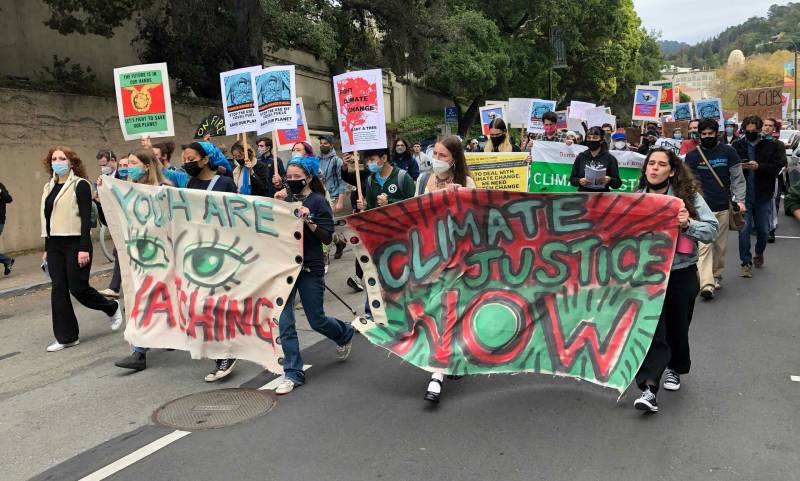For Karly Hampshire, a medical student at UCSF who attended the march, the climate is directly related to health. “Climate solutions are health solutions, and the health of every person alive today on the planet will be fundamentally affected by climate change,” she said. “Health institutions need to join together and start taking climate change seriously.”
On the state level, Lauren Sanchez, Gov. Newsom’s senior climate adviser, also sees climate as a multilayered issue. “Truly tackling this crisis means integrating this issue into everything we do: the governor’s entire agenda on health care, on immigration, on education, and so much more,” she said. “We know that climate justice can deliver social and economic justice.”
Sanchez told KQED on Wednesday through a recorded message from Glasgow that her top agenda item is “to save the planet from our certain doom.” Sanchez said the state of California brings two important messages to the global stage and world leaders in Scotland: “One is around hope and the other around the urgency of this crisis,” she said.
While she said she’s been to many of these conferences, this one “feels different,” because of the sense of urgency. Her top concern when it comes to climate change is “the disproportionate impacts that we know this crisis has on low-income Californians and our communities of color that are already suffering from too many environmental and social burdens.”
Speaking alongside Sanchez from Glasgow, Jared Blumenfeld, the secretary of California’s Environmental Protection Agency echoed the importance of taking action quickly.

